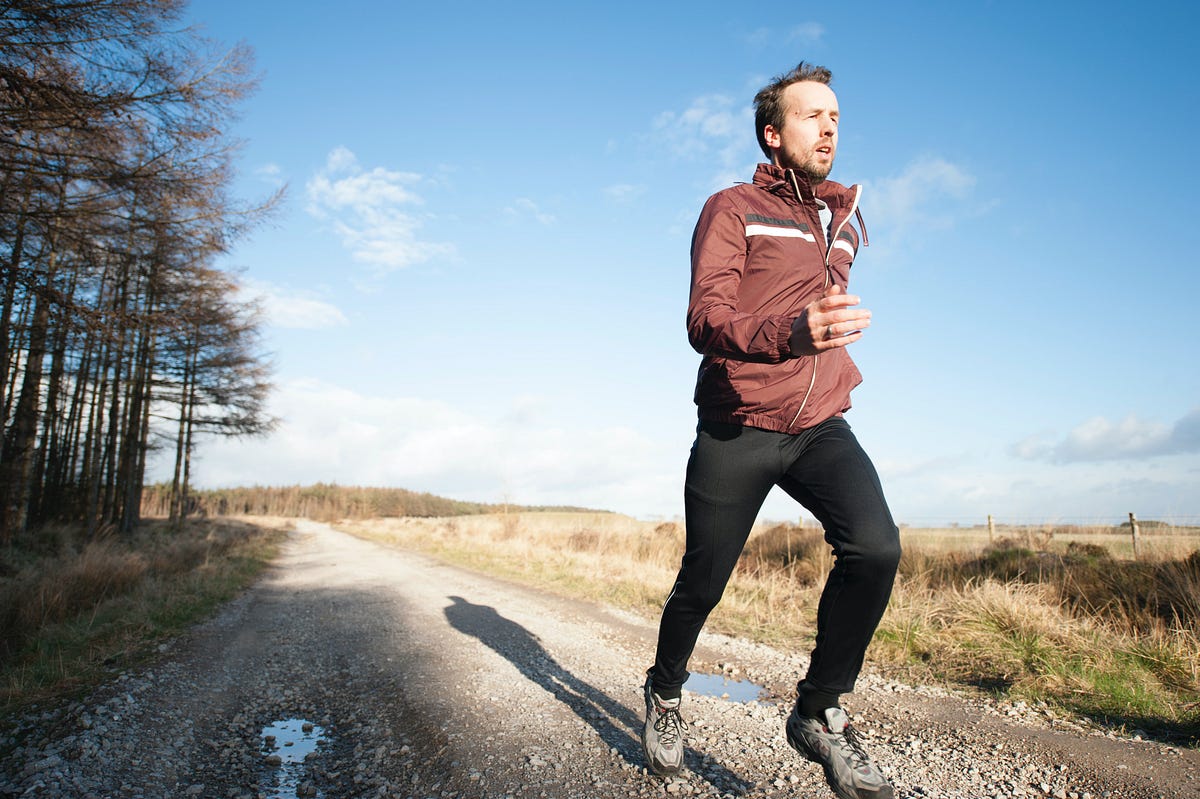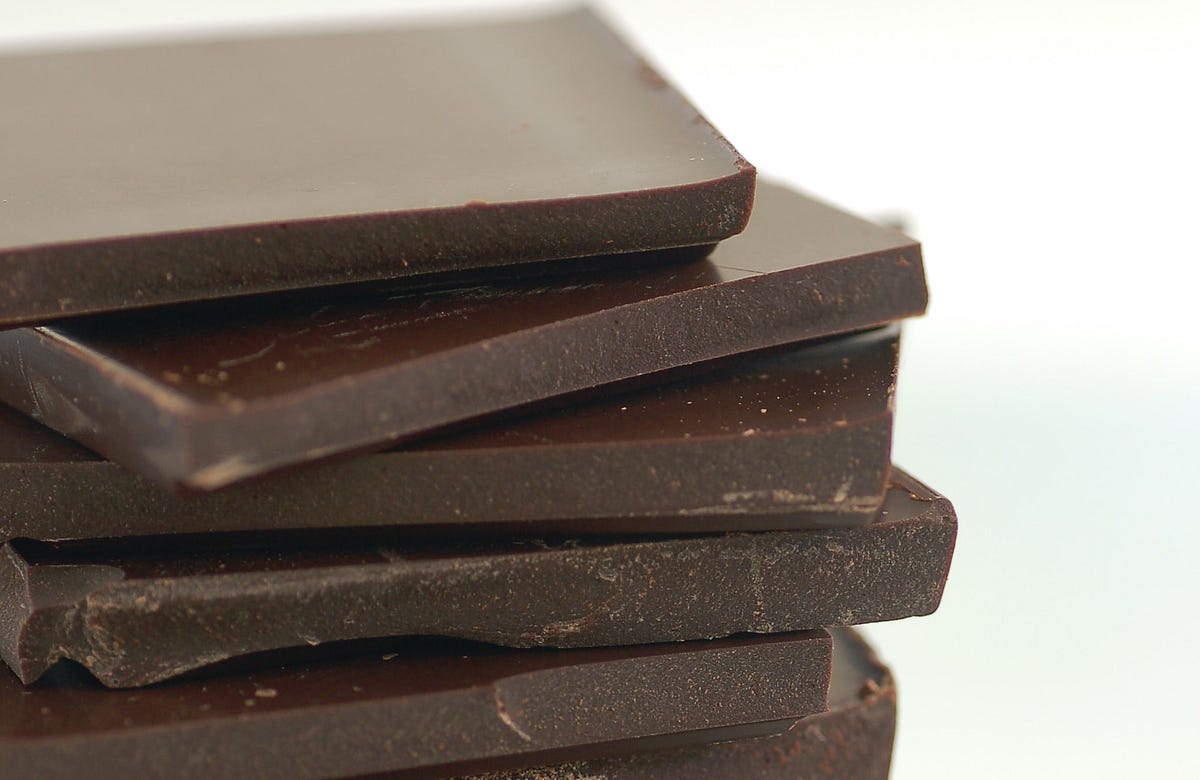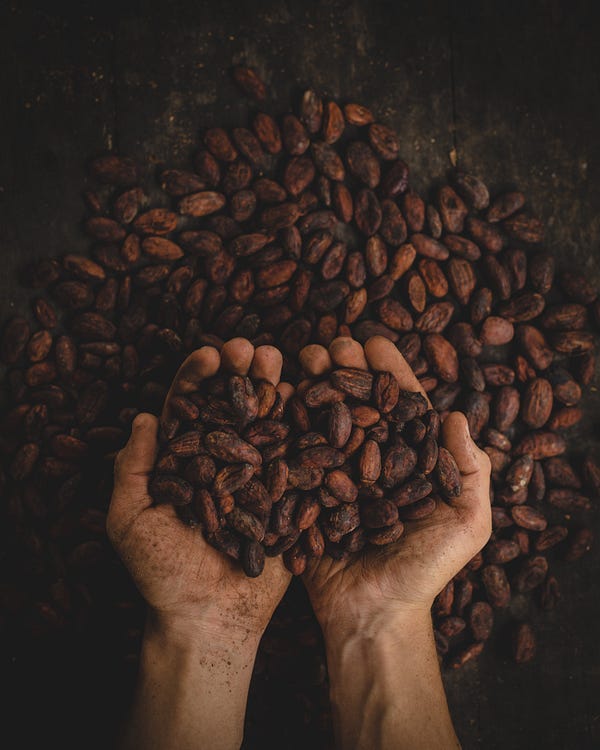Exercise and Chocolate.
Although they seem to be on opposite ends of a spectrum, we have all linked them together more times than we would care to admit.
It’s like there’s a secret back door in our minds that links said spectrum together in a circle behind closed doors, which is where we eat most of our chocolate.
Apart from being a delicious form of indulgence that we’ve earned after sweating our ass off in the gym, chocolate and exercise combine in a way that you might not have thought about and that could be very beneficial to your health.
“Chocolate can be very beneficial to your health.”
Back to Exercise
Let’s loose the chocolate. Don’t freak out, it’s just for a minute and it will come back later, I promise.
On one side of the spectrum we have exercise. This is the side we all know we should spend more time in instead of looking longingly towards the other end of the spectrum and you-know-what.
Are these thoughts making you hot? I should think so, because that is exactly what exercise does.
How We Exercise
During exercise our muscles are constantly contracting one way or another (they come in pairs, just like chocolate squares) to produce movement and this contraction requires energy.¹
Unfortunately, this procedure is far from efficient, which means you have to put in much more effort than you would think to create movement. This is because:
“approximately 20% of the energy produced in contracting muscles is used for muscle contraction; the remaining 80% is converted to heat energy.”²
Because of this your core body temperature increases during exercise. No wonder you sweat buckets when you go for a long run.

Your Response To Exercise
No, not the string of expletives telling your mate to f**k off when they suggest going to the gym, this is your body’s natural response.
Let me throw you a science curve ball. Actually, it might be more of a reminder, so maybe more of a meatball (mmm, more food references) but bare with me.
Homeostasis:
“Homeostasis, any self-regulating process by which biological systems tend to maintain stability while adjusting to conditions that are optimal for survival. If homeostasis is successful, life continues; if unsuccessful, disaster or death ensues.”³
I’m sure you’ve heard of homeostasis before in biology class and maybe it didn’t sound so sinister back then, but the reason it is important is because it is explains how your body reacts the way it does to increased temperature.
Under the Surface
With an increase in temperature our bodies immediately look for a way to cool back down to optimum levels. So we sweat.
But what is actually happening when we sweat?
Sweaty Betty
The response in your brain when you get hot is to send a message to all your sweat glands to start releasing sweat, but on its own this isn’t enough to cool you down.
What actually cools you down (or transfers the heat away from your body) is the act of evaporating the sweat from the heat of your body.⁴ To help with this your body also goes through a process called vasodilation.
Time for some more science (there will be chocolate soon, just hold on).
Vasodilation:
“Blood vessels leading to the skin capillaries become wider — they dilate — allowing more blood to flow through the skin and more heat to be lost to the environment.”⁵
What does this mean? Essentially, you get a red face.
The Face of Doom
We’ve all had that nightmare where we’ve just finished going for a jog and we round the final corner only to bump into that guy we really fancy from work or that friend we haven’t seen since high school, and they see our red, sweaty face.
Oh wait, that wasn’t a nightmare, that was last week.
Natural Red Head (Face)
Although many people think it’s embarrassing it is simply a natural reaction to exercise that just means you’re putting in some serious effort. Personally I think that’s commendable and should be more celebrated than hidden.
If, on the other hand, you’d rather keep it hidden, this red face usually calms down after 20minutes or so.⁶ If you find yourself hiding away for longer than this, or you feel like your face is simply much redder than everyone else in the room after your spin class, this could be a sign of something more than just working up a sweat.
Inflammation
A redder than usual face (whatever that means to you) could be a sign that you have some sort of inflammation in your body.
A common condition associated with the flaring up of your face and/or neck is that of Rosacea.
“Rosacea is a common skin condition that causes redness and visible blood vessels in your face. It may also produce small, red, pus-filled bumps.”⁷
The possible triggers for flare ups include those of alcohol, spicy food and stress as well as increased temperature from exercise.
While it is believed that rosacea cannot be completely cured and only go into remission, there are things you can do to help reduce these symptoms.
One such example is exercising by swimming, as the water is cool and keeps your body temperature lower.⁸
Another example is chocolate. Here we go.

Chocolate Hero
Now, as you would expect I’m not saying that you should stuff your face with chocolate and expect your health to magically improve. Far from it. Far, far from it.
What I’m talking about concerns one of the ingredients within the chocolate.
Flavonoids
No, I didn’t sneeze while typing, flavonoids are a real and they could be your new best friend.
“Flavonoids are a group of natural substances found in fruits, vegetables, grains, bark, roots, stems, flowers, tea and wine.”⁹
These flavonoids possess several anti-inflammatory properties¹⁰, which is why they can be so beneficial in countering inflammatory conditions such as rosacea.
Lucky for all of us, the main ingredient for chocolate comes from a plant that contains a lot of flavonoids.
A Chocolate Side Note
This will blow your mind if, like me, you didn’t already know this:
“Chocolate is made from cacao beans.”¹¹
Read it again, it’s not a typo! Cacao!
Cacao, although very close to the spelling of the word we all know and love “Cocoa”, is actually the source of the ingredient that makes us salivate.
Why is this important?
I don’t know the reason behind spelling these two words so similarly and frankly it is confusing, but here is the difference:
Cacao powder — The natural compound made from fermenting cacao beans.
Cocoa powder — A similar compound but made from processing at a much higher temperature.¹²
Why bother?
Processing the beans at a higher temperature makes the taste sweeter and more soluble for mixing with other ingredients to make the chocolate products we are all familiar with.
Again, why is this important?
To make the taste of cacao less bitter and more palatable for our Western tastes, higher processing temperatures, added sugars and artificial sweeteners, and a process called alkalization is used.
The problem with this is that through these processes, the cocoa that results is much lower in nutritional value and is stripped of all the beneficial flavonoids that can help with inflammation.
Are you ready for chocolate and your health to shake hands around the back of all the mainstream information? Let’s go.

Cacao is King
Because the process from cacao bean to cacao powder is more natural, the nutritional properties and health benefits are retained and actually make it a superfood:
“foods that can have health-promoting properties such as reducing one’s risk of disease or improving any aspect of physical or emotional health.”¹³
As well as being proven to help lower blood pressure and reduce diabetes risk, cacao is densely packed with flavonoids that have been proven to help reduce inflammation.¹⁴
Your Chocolate Choices
While there are still relatively few companies that use natural cacao powder compared to those who use conventional cocoa (know the difference now?), there are some who are using the genuine superfood version to provide you with health benefits and a great taste.
GRIT
One such company is, you’ve guessed it, GRIT.
We use all natural cacao powder in our High Performance Chocolate Bites, which gives them an incredible flavour and some extra health benefits to savour.
It’s so important to us that when you eat GRIT you’re doing more than just treating yourself to something tasty after a workout, but that you’re also putting the right stuff into your body that will help you recover, grow and become stronger.
Alongside natural cacao powder, our products include a whole host of other superfoods with their own unique benefits, such as pea protein that we talked about last week.
Because of this you can rest assured that when you reach for a bag of GRIT after a work out, you’ll be helping yourself recover and save your self from any unnecessary red faces.
Unless you do something like fall over or saying something embarrassing, I’m afraid we can’t help you there.
- http://www.colby.edu/chemistry/BC176/CH3.pdf
- https://www.intechopen.com/books/diabetes-and-its-complications/body-temperature-regulation-during-exercise-and-hyperthermia-in-diabetics
- https://www.britannica.com/science/homeostasis
- https://www.houstonmethodist.org/blog/articles/2020/aug/how-sweat-works-why-we-sweat-when-we-are-hot-as-well-as-when-we-are-not/
- https://www.bbc.co.uk/bitesize/guides/zwj4xfr/revision/5#:~:text=When%20we%20get%20too%20hot,the%20skin%20release%20more%20sweat.&text=Blood%20vessels%20leading%20to%20the,This%20is%20called%20vasodilation%20.
- https://rosadyn.com/rosacea/skin-care/when-a-red-exercise-face-is-beyond-normal/
- https://www.mayoclinic.org/diseases-conditions/rosacea/symptoms-causes/syc-20353815#:~:text=Rosacea%20(roe%2DZAY%2Dshe,go%20away%20for%20a%20while.
- https://www.everydayhealth.com/rosacea/staying-active-with-rosacea.aspx
- https://www.ncbi.nlm.nih.gov/pmc/articles/PMC5465813/#:~:text=Flavonoids%2C%20a%20group%20of%20natural,the%20ingredients%20so%20called%20flavonoids.
- https://www.ncbi.nlm.nih.gov/pmc/articles/PMC6407021/#:~:text=Flavonoids%20exert%20their%20anti%2Dinflammatory,key%20inhibition%20of%20signaling%20pathways.
- https://www.healthline.com/nutrition/cacao-vs-cocoa#terminology
- https://www.allrecipes.com/article/difference-between-cocoa-and-cacao/#:~:text=Cocoa%20powder%20and%20cacao%20powder,contains%20added%20sugar%20and%20dairy).&text=So%2C%20cacao%20powder%20is%20made,that%20have%20not%20been%20roasted.
- https://www.medicinenet.com/script/main/art.asp?articlekey=125459
- https://www.webmd.com/diet/health-benefits-cacao-powder
GRIT is a company passionate about improving human performance through food & science.
Our knowledge is ever expanding with the latest research in nutrition and pharmacology so that we can create food that provides your brain and body with everything they need to ensure optimal performance.
Our latest products include our new and improved formula with added antioxidants, organic compounds and beneficial amino acids alongside 20g+ of 100% plant-based protein.



